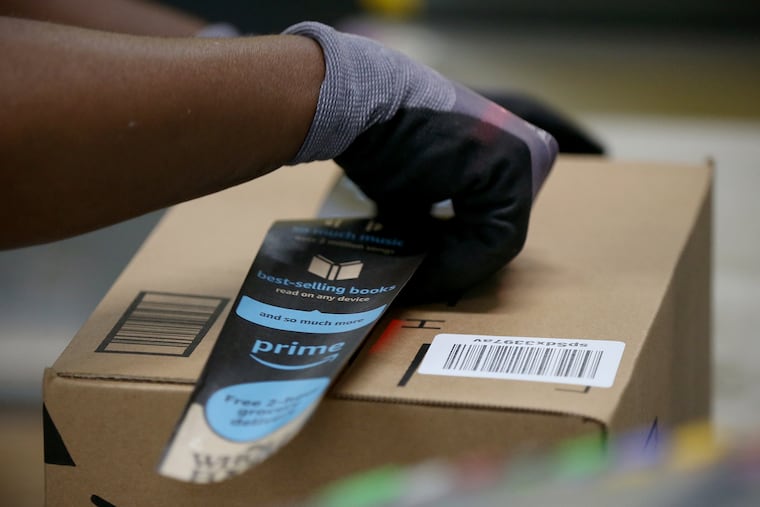Should Amazon pay warehouse workers while they wait for security screenings? Pa. Supreme Court will decide.
It’s a question that’s been winding its way through courts across the country in a series of cases for nearly a decade.

Does Amazon have to pay its warehouse workers for the time they spend going though security checks after their shifts?
It’s a question that’s been winding its way through courts across the country in a series of cases for nearly a decade — and the Pennsylvania Supreme Court recently agreed to weigh in.
The state’s top court said Friday that it would hear the proposed class action, as per a request from the U.S. Court of Appeals for the Sixth Circuit, an Ohio-based court whose judges said they were not familiar enough with Pennsylvania state law to decide the case.
In a unanimous decision made in 2014, the U.S. Supreme Court ruled that, under federal law, Amazon does not have to pay its workers for time spent waiting for security screenings. The Pennsylvania Supreme Court will now decide whether Pennsylvania’s minimum-wage law requires the company to do so.
The two plaintiffs named in the case are Neal Heimbach and Karen Salasky, both of whom worked at the Amazon warehouse in Breinigsville, Pa., in the Lehigh Valley. The two have been outspoken about working conditions in the early 2010s, a time of less public scrutiny on Amazon’s warehouses. They originally filed the proposed class action in 2013.
The plaintiffs said the security checks, aimed at preventing theft, could take up to 20 minutes after they clocked out. Workers in Nevada who had brought a similar case said it could take up to 25 minutes to complete a screening, during which workers passed through a metal detector and waited in a second line to get searched with a metal-detecting wand. That’s in contrast to the company’s strict tracking of employee breaks. In court documents, Amazon has described claims of the security process taking that long as “grossly inaccurate."
In the years since the Heimbach and Salasky case was filed, backlash against Amazon has grown.
After a widely publicized search for a second headquarters led Amazon to choose Long Island City, Queens, for one of its locations, community organizers raised concerns about gentrification and the billions of dollars in financial incentives offered to the company. Amazon eventually pulled out of Queens. Several investigations, including a recent report by Reveal from the Center for Investigative Reporting, have suggested that the company puts productivity over the safety of its warehouse workers. And across the country, Amazon workers — both white collar and low wage — have been organizing and walking out over working conditions and issues such as the company’s impact on climate change.
Amazon is projected to have $238 billion in sales this year. It employs 750,000 people. Its CEO, Jeff Bezos, is one of the richest people in the world.
The Philadelphia area is home to several Amazon warehouses, including a recently opened location in West Deptford that the company says employs more than 1,500, another in King of Prussia, and a “Prime Now” warehouse in Philadelphia’s University City neighborhood.